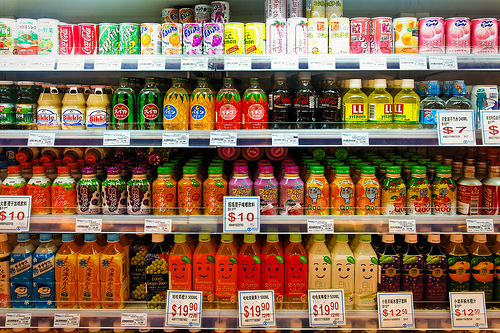Product Marketing Schemes: Confusion in the Supermarket?
Each year in March, Dietitians of Canada campaign for healthy eating during Nutrition Month. This year, the theme is helping Canadians to put their “best food forward” when grocery shopping for healthy food. The focus is on teaching consumers how to plan and shop for healthy food at the supermarket. This topic got me thinking, why is it so hard for Canadians to choose healthy food at the grocery store? Everyone knows that fresh produce and whole foods are good for you – colourful fruits and veggies, whole grains, lean meats and low-fat dairy. So why do Canadians struggle with making healthier food choices in the grocery store?
I think that a large part of the problem is that marketing for food products, especially convenience food products, are confusing consumers. Take, for example, granola bars. An entire aisle at the supermarket is filled with processed, packaged snacks that boast health benefit claims for their products such as “made with real fruit filling”; “a high source of fibre”; or “made with whole grains”. We read these marketing phrases and suddenly believe that these products are good for us. But if we take the time to stop, and read the food labels and ingredients in these products, we’ll find these packaged foods are filled with sugar and other additives.
Sugar can also be hidden in the ingredient list with alternative names such as glucose-fructose, dextrose, corn syrup, glucose solids, and invert sugar. The problem with snacks high in sugar is that they release sugar into our bloodstream, spike our insulin levels and when those levels drop, we crave sugar again! It’s a vicious cycle that we’ve all been through.
So what is the solution?
Reading food labels for one. This will identify the ingredients you are actually consuming – not just the “good” ones advertised on the front of the packaging.
But going a step further, challenge yourself to not rely on convenient food on a daily basis. I’m not saying never eat granola bars, cereal bars or packaged snacks. We all need food “on the go” sometimes. But don’t rely on these products and the claims that their packaging makes. Delve deeper and decide what food is going to provide you with long-lasting energy throughout the day and essential nutrients you need for your health.
A granola bar may boast 9 grams of fiber, but it probably also contains added sugars, oil, sodium and artificial flavour. You know what else contains 9 grams of fiber? A cup of blueberries and a handful of walnuts.
So in lieu of March Nutrition Month, challenge yourself to include more whole foods and fresh produce for your snacks. Don’t fall for the marketing traps put on the front of food packaging. Be a smart shopper, and always read the ingredients lists on packaged foods. Put a little more thought and effort into planning the food you are going to eat, and your body will thank you!
Photo Credit: Benson Kua via Compfight cc

